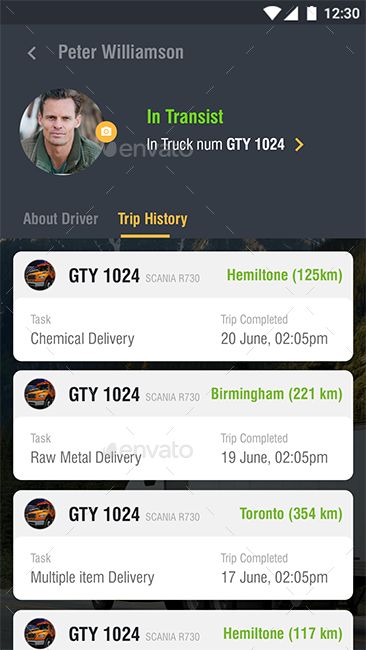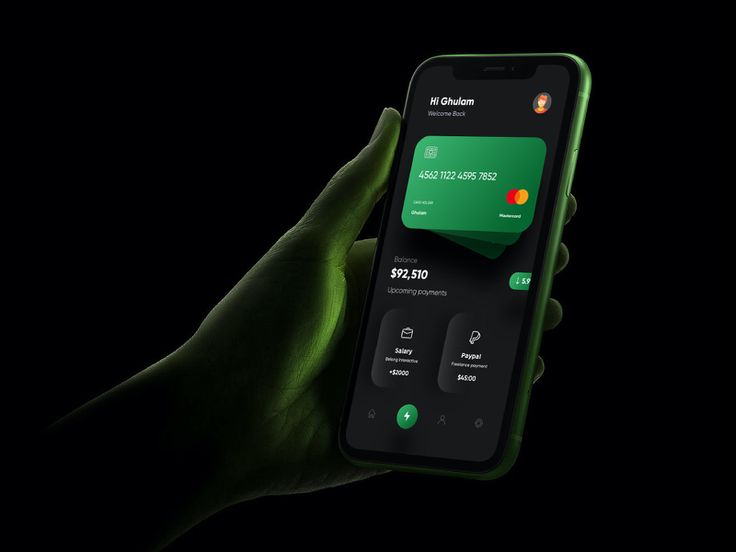Building powerful, user-friendly mobile applications for iOS and Android
In today's mobile-first world, having a powerful and user-friendly mobile application is essential for businesses looking to engage with their customers effectively. At Cloud9 Software Solutions, we specialize in developing high-quality mobile applications that deliver exceptional user experiences and drive business growth.
Whether you need a native iOS or Android app, or a cross-platform solution, our team of experienced mobile developers has the expertise to bring your vision to life. We focus on creating mobile applications that are not only visually appealing but also performant, secure, and scalable.
We follow a structured, transparent process to ensure successful mobile app delivery
We begin by understanding your business goals, target audience, and app requirements. This phase includes market research, competitor analysis, and defining the app's core functionality.
Our design team creates wireframes and interactive prototypes to visualize the user interface and experience. We focus on creating intuitive, engaging, and user-friendly designs.
Our development team builds your mobile app using the chosen technology stack. We follow agile methodologies to ensure transparency and flexibility throughout the development process.
We conduct thorough testing to ensure your app is bug-free, secure, and performs optimally across all target devices and operating systems.
We handle the app store submission process, ensuring your app meets all the requirements and guidelines for the Apple App Store and Google Play Store.
After launch, we provide ongoing maintenance and support to ensure your app continues to perform optimally and evolves with user feedback and market trends.
Understanding the differences to choose the right approach for your mobile app
Explore the different types of mobile apps we specialize in developing
Mobile applications that enable users to browse, purchase, and track products or services directly from their smartphones.
Platforms that connect users, allowing them to share content, communicate, and build communities around shared interests.
Applications that connect service providers with customers, enabling quick access to services like transportation, food delivery, or home services.
Mobile solutions for financial services, including banking, payments, investments, and personal finance management.
Applications focused on health monitoring, medical services, fitness tracking, and overall wellness management.
Learning platforms that provide educational content, courses, and interactive learning experiences for various subjects and skill levels.
See how our mobile app development services have transformed businesses
Client: Local Logistics Company
A Kenyan logistics company needed a modern trucker app to streamline freight operations, optimize route planning, and connect shippers with reliable truckers for efficient cargo transport across the country.
We developed a cross-platform app that included real-time tracking, intelligent route optimization, and a dual interface for both merchants and delivery partners. Our solution also provides load matching, and seamless communication, empowering businesses and drivers to move goods faster and smarter.

Client: Regional Financial Institution
A leading microfinance in Kenya wanted to modernize their mobile banking experience to increase digital adoption and reduce branch visits.
We created native iOS and Android applications with biometric authentication, personalized financial insights, and a streamlined transaction interface.

We handle the entire app store submission process to ensure your app gets approved quickly
Review process typically takes 1-3 days, but can be longer for complex apps or during peak periods.
Review process typically takes 1-2 days, with some apps being approved within hours.
Transparent pricing for our mobile development services
| Service | Price Range |
|---|---|
| Native iOS App Development | KSH 100,000 - 400,000 |
| Native Android App Development | KSH 100,000 - 400,000 |
| Cross-Platform App Development | KSH 150,000 - 500,000 |
| App Maintenance & Support (Monthly) | KSH 20,000 - 50,000 |
Get answers to common questions about our mobile development services
The timeline for mobile app development varies depending on complexity. Simple apps might take 2-3 months, while complex applications can take 4-8 months or more. During our discovery phase, we'll provide a detailed timeline based on your specific requirements.
Native development involves building separate apps for iOS and Android using platform-specific languages (Swift/Objective-C for iOS, Kotlin/Java for Android). This approach offers optimal performance and access to all platform features. Cross-platform development uses frameworks like React Native or Flutter to build a single codebase that works on both platforms, reducing development time and cost but potentially with some performance trade-offs for complex applications.
App development costs vary widely based on complexity, features, platforms, and design requirements. Basic apps might start around KSH 150,000, while complex applications with advanced features can cost KSH 500,000 or more. We provide detailed estimates after understanding your specific requirements and can work with you to prioritize features to fit your budget.
Yes, we manage the entire app store submission process for both the Apple App Store and Google Play Store. This includes preparing all required assets, optimizing listings for discoverability, ensuring compliance with store guidelines, and addressing any feedback from the review process.
We offer post-launch support and maintenance services to ensure your app continues to perform optimally. This includes monitoring performance, fixing bugs, implementing security updates, and adding new features based on user feedback. We recommend ongoing maintenance to keep your app compatible with new OS versions and device types.